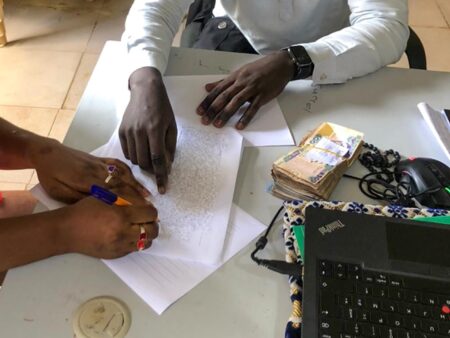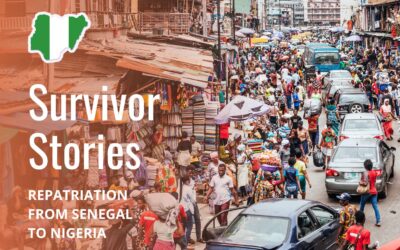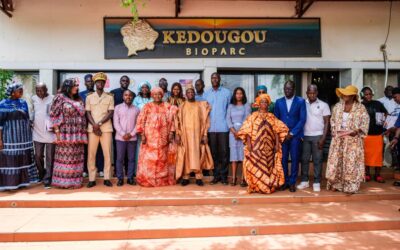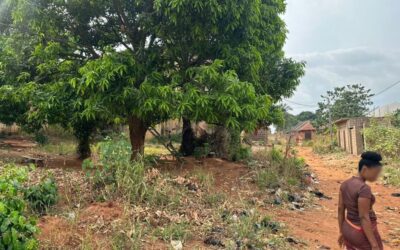
The Kedougu region of Senegal is currently caught up in a gold rush, with thousands of people working in informal artesian gold mining. Despite the economic potential of gold, it creates comes with a price that has is a darker effect on the community. A local belief that men who have sex before mining for gold are more likely to find gold is driving a demand for sex in the region. And the demand for sex is fueling the trafficking of women into Senegal to meet this demand. Free the Slaves is working with our partners to address sex trafficking in the region.
In September, Free the Slaves assisted 21 survivors of sexual exploitation, facilitating their return home and equipping them with essential resources for rehabilitation and the journey toward self-sufficiency. Twenty one more survivors were repatriated also repatriated in October.
An initial focus of the mission was to enable survivors’ access to various social and administrative opportunities, which begins with the issuance of national identification cards.
The survivors then participated in self-development training. This phase is pivotal in establishing trust with others and fostering reintegration into society.
Over the next two days the NGO Emmanuel World Children Foundation, our partners in Nigeria, hosted a series of mini workshops on life and financial management skills to the survivors. These brief sessions helped reorient them to their home and prepare them for the challenges that lie ahead.
In one of the trainings, a survivor from a previous repatriation group showcased her experience with vocational education, and shared some of the beautiful cakes she had crafted. Another former survivor joined as a peer trainer, shared an uplifting story of triumph over adversity, offering additional inspiration.
The aim of this initiative is not merely centered on training and rehabilitation. It is about illuminating the remarkable strength derived from solidarity. Such programs aspire to forge a world where those who have endured trauma can not only find healing but also new beginnings, hope, and a community of peers for support.
FTS’ services in Senegal aim to strengthen the technical capacity and coordination skills of grassroots partners and government stakeholders, including law enforcement, judiciary, and social service providers, to effectively provide support to victims of sex trafficking and their families. Additionally, we aim to raise awareness and promote positive practices among stakeholders in the mining sector and the general public. FTS aims to identify, refer and provide shelter to 200 adolescent girls and young women involved in sex trafficking in the artisanal gold mining sector, with a focus on reintegrating at least 25 Senegalese survivors into society and providing socio-economic services to their families. Furthermore, we have established two survivor networks for advocacy and support, while also facilitating the reintegration or voluntary repatriation of foreign victims of sex trafficking in Senegal.
These activities are funded by the U.S. Department of State Office to Monitor and Combat Trafficking in Persons. The opinions, findings, and conclusions therein are those of the author[s] and do not necessarily reflect those of the United States Department of State.




